Data, machine learning, and artificial intelligence are disrupting everything we know, in ways that most of us don’t understand… yet. To help you keep up, we’ve launched a new series, Degreed Does Data. We’ll dive deep into these topics, simplify their complexities, explain their potential impact, and break down the dramatic ways they’ll change the industry. Our previous entries include data science, machine learning, and algorithms.
Today, we’re tackling one of the most expansive and elusive ideas of the last century: Artificial Intelligence (AI). AI is how machines learn from experience, adjust to new inputs, and complete tasks. From healthcare to retail to banking, AI is revolutionizing how business (and the world) operates. Let’s take a look at why.
What is Artificial Intelligence?
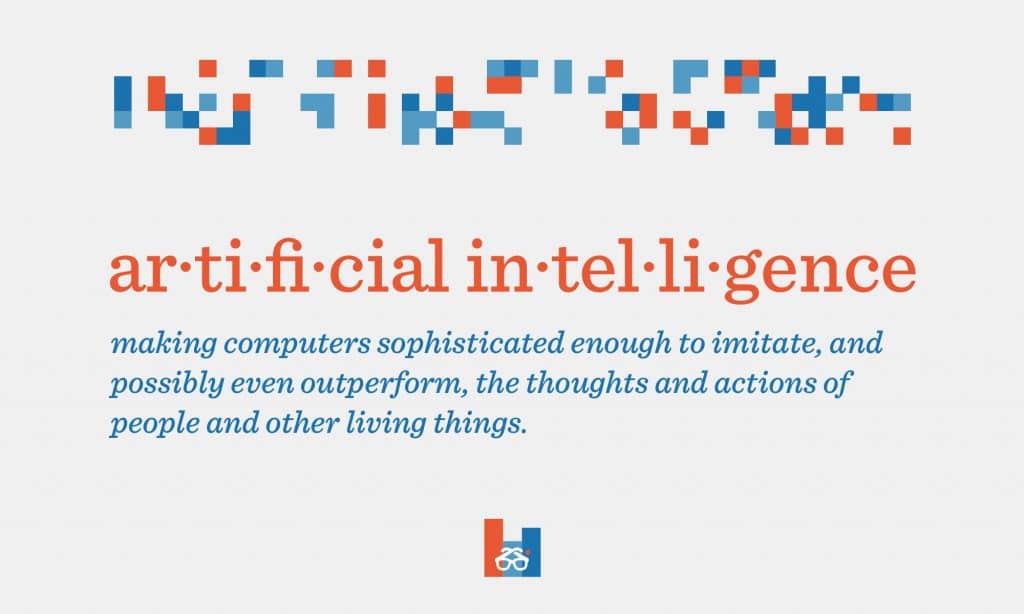
Definition: Making computers sophisticated enough to imitate, and possibly even outperform, the thoughts and actions of people and other living things.
AI has been a hot topic for decades, but recently, the conversation has intensified. What’s changed?
For over 60 years, computer scientists have pursued artificial intelligence, trying to build machines that are able to effectively solve problems for people. Almost always, the approach has been writing a few rules — in the form of programming — and then watching the machine follow these rules. If the rules were right, the machine would solve the problems.
Of course, we could never write all the rules to solve every problem. Reality is too complicated, there are too many rules, and even we humans don’t really understand them all. So, for decades, AI has developed slowly, only going as far as we could direct it.
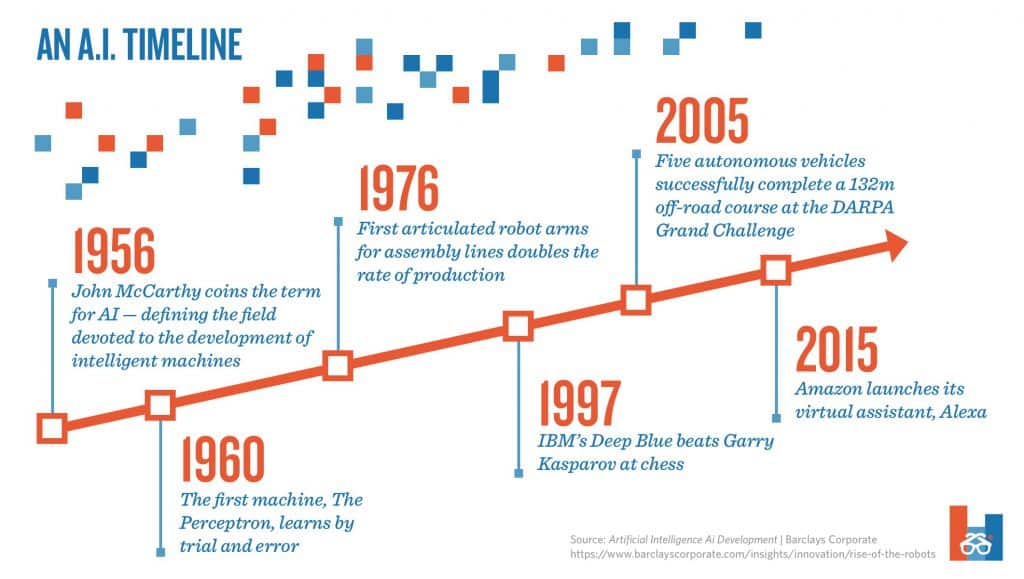
This then begs the following questions: what if we had another way for machines to solve problems? What if we didn’t have to write rules for these machines? And what if they could program themselves?
The answer to this tricky trio is machine learning, the field of research that has advanced AI in recent years. With a bit of guidance and tons of practice, machines can figure out the rules without humans programming anything, developing intelligence that was never explicitly taught. In fact, these machines can even develop intelligence which exceeds that of humans.
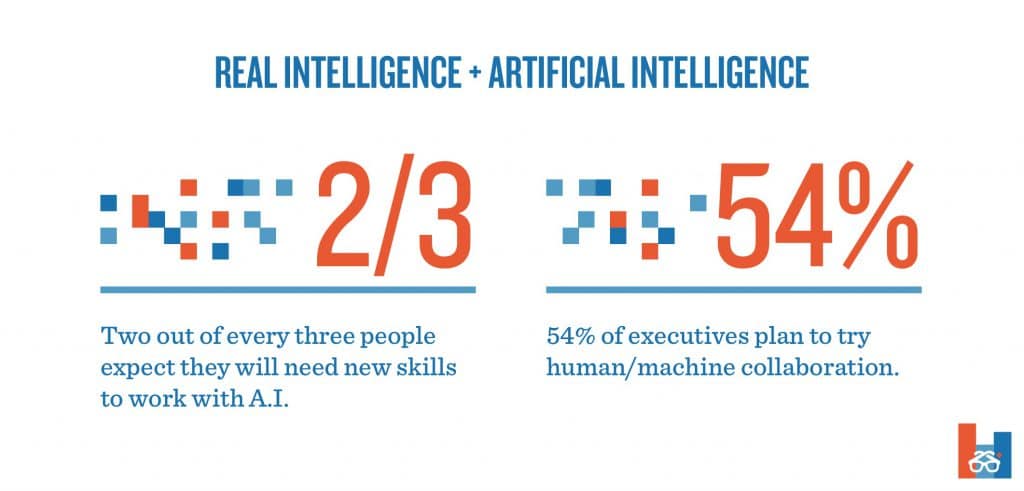
Since artificial intelligence can carry itself past the limits of human intelligence, we can expect plenty of unexpected changes. If you’re responsible for what people are supposed to learn, then you need to know exactly what artificial intelligence is learning as well.
Think about how AI is already affecting work. In schools, apps with natural language processing can check students’ writing for mistakes, so teachers can read for big ideas. In labs, engineers can be more creative with generative design software that automatically tests endless prototypes. In hospitals, virtual assistants can let nurses focus on providing the human touch.
Since artificial intelligence is shifting our skills so quickly, the workforce is beginning to experience the destabilizing effects. Two out of every three people expect they will need new skills to work with AI, and 54% of executives plan to try human/machine collaboration. To keep up, get AI on your side. Start using a platform that will figure out what people are learning, how they are learning it, and why it would pay off.
Asking your SaaS Vendors about Artificial Intelligence
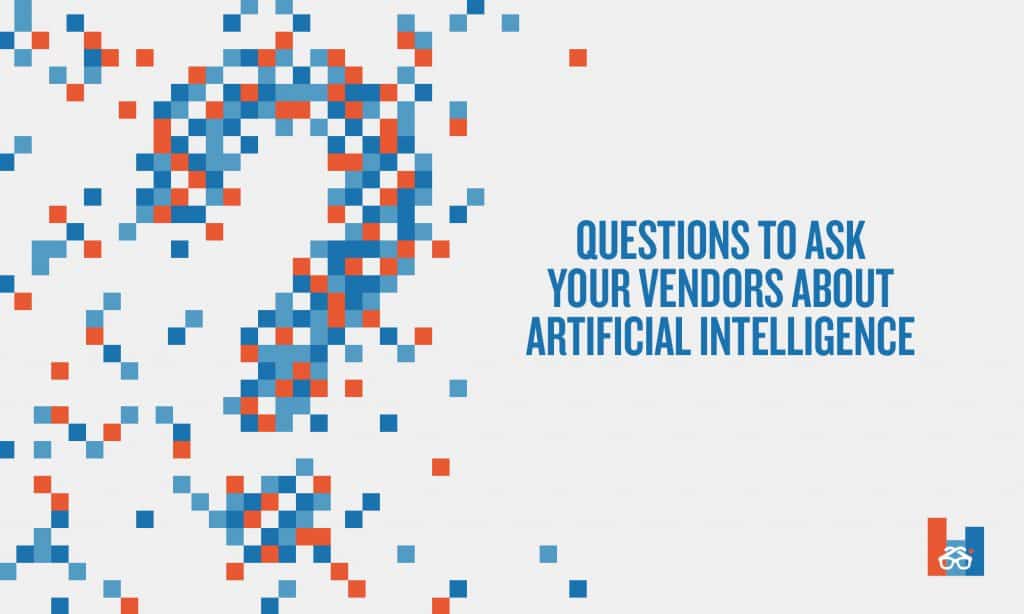
What human tasks are automated with this tool?
Some promoters of AI are selling ideas, not realities. When you consider a solution, make sure you know what it actually does, not just what is hoped for. How have organizations used this specific tool to do work that humans had tried to do before? If the software isn’t making specific contributions to people’s productivity, it’s not ready yet.
How does this system adapt to changing circumstances?
Many critics of AI complain that programs can complete singular tasks, but can’t adjust to basic changes. It seems that AI lacks the common sense of humans. In response, engineers are trying to design a more general artificial intelligence. For your AI solutions, ask how the tools have adapted to changes in the past. Have they been brittle and limited, or were they designed to be more flexible and dynamic?
What about ethics and security?
Many of the brightest minds in tech are deeply worried about AI. They’re not just spooked by the Terminator movies; the concerns are more immediate. Who owns the data that powers the AI systems? How should AI make fair decisions in zero-sum dilemmas? Can we trust an algorithm that we don’t fully understand?
As you explore the options, consider how your organization and your people will be protected when they use the software.
More Artificial Intelligence Resources
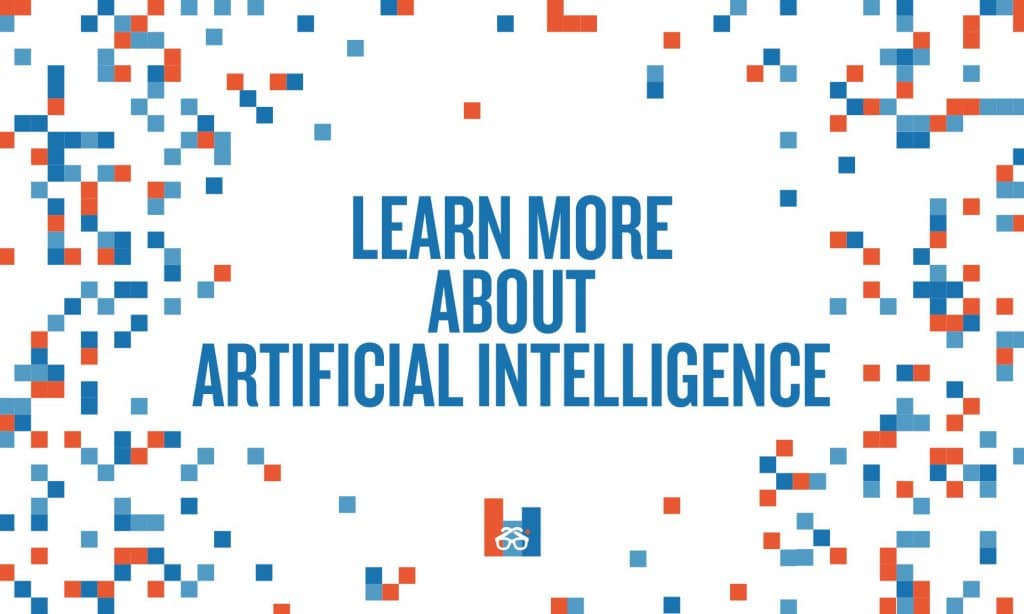
The Wired Guide to Artificial Intelligence (6 min article) Wired Magazine goes over the capabilities and complexities of AI, with links and sidebars as valuable as the writing itself.
Rise of the Robots (infographic) This timeline shows how the Turing test and the first robot arms gradually evolved to become Google’s DeepMind, Amazon’s Alexa, and IBM’s Watson.
Why Artificial Intelligence Has No Common Sense (6 min video) A video blogger from The Verge cuts through the hype about AI, grappling with its limits to better understand what needs to happen next.
How AI Can Improve How We Work (20 min podcast) On the Harvard Business Review’s IdeaCast, two executives from Accenture discuss their book about how AI is used in the most successful organizations.
